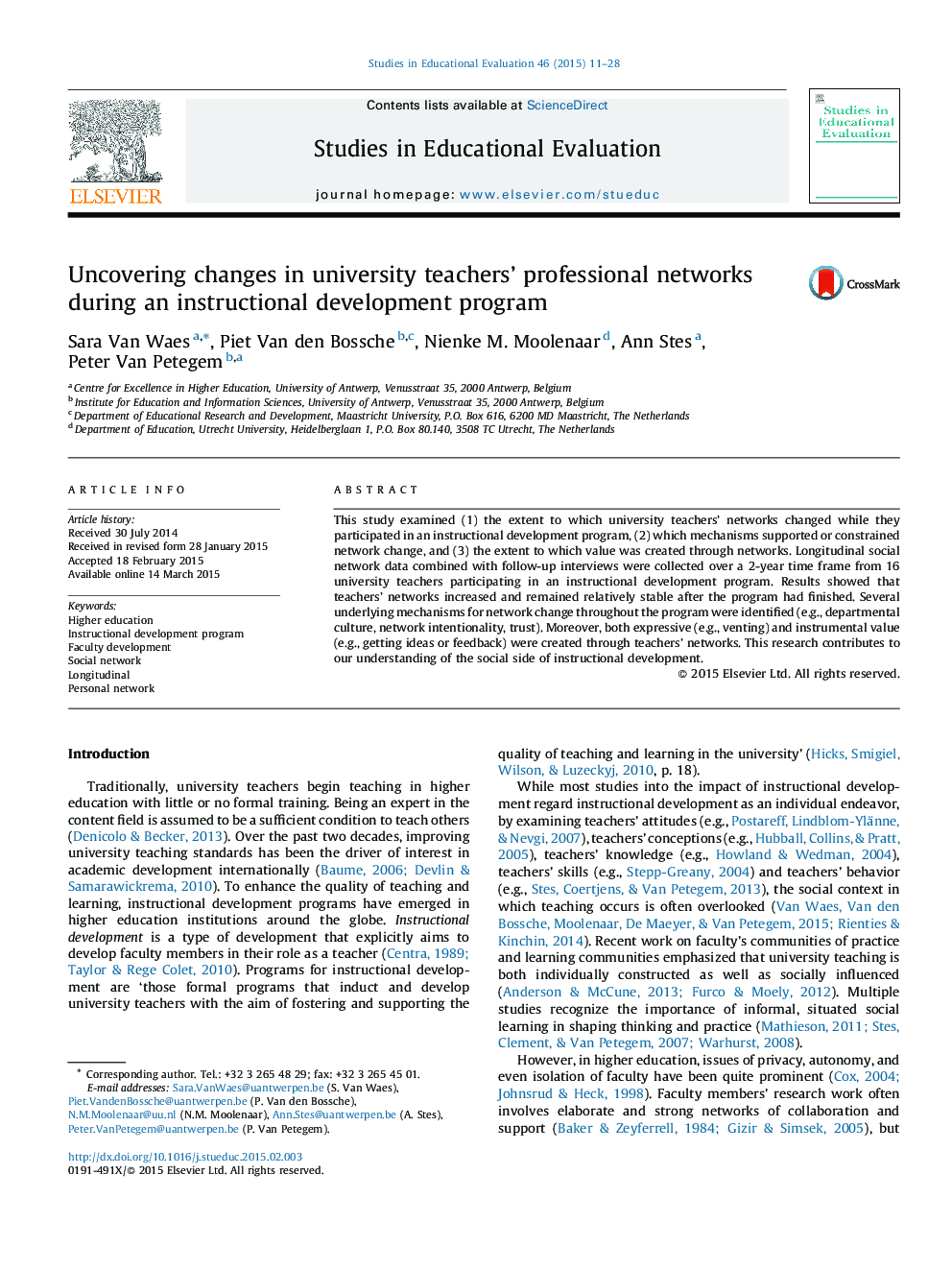| Article ID | Journal | Published Year | Pages | File Type |
|---|---|---|---|---|
| 372584 | Studies in Educational Evaluation | 2015 | 18 Pages |
•Social networks should be considered in faculty development research.•Longitudinal personal network data were combined with follow-up in-depth interviews.•Teachers’ networks increased during the program and remained stable afterwards.•Supporting and constraining mechanisms for network change were identified.•Teachers created work-related and affective value through networks.
This study examined (1) the extent to which university teachers’ networks changed while they participated in an instructional development program, (2) which mechanisms supported or constrained network change, and (3) the extent to which value was created through networks. Longitudinal social network data combined with follow-up interviews were collected over a 2-year time frame from 16 university teachers participating in an instructional development program. Results showed that teachers’ networks increased and remained relatively stable after the program had finished. Several underlying mechanisms for network change throughout the program were identified (e.g., departmental culture, network intentionality, trust). Moreover, both expressive (e.g., venting) and instrumental value (e.g., getting ideas or feedback) were created through teachers’ networks. This research contributes to our understanding of the social side of instructional development.
